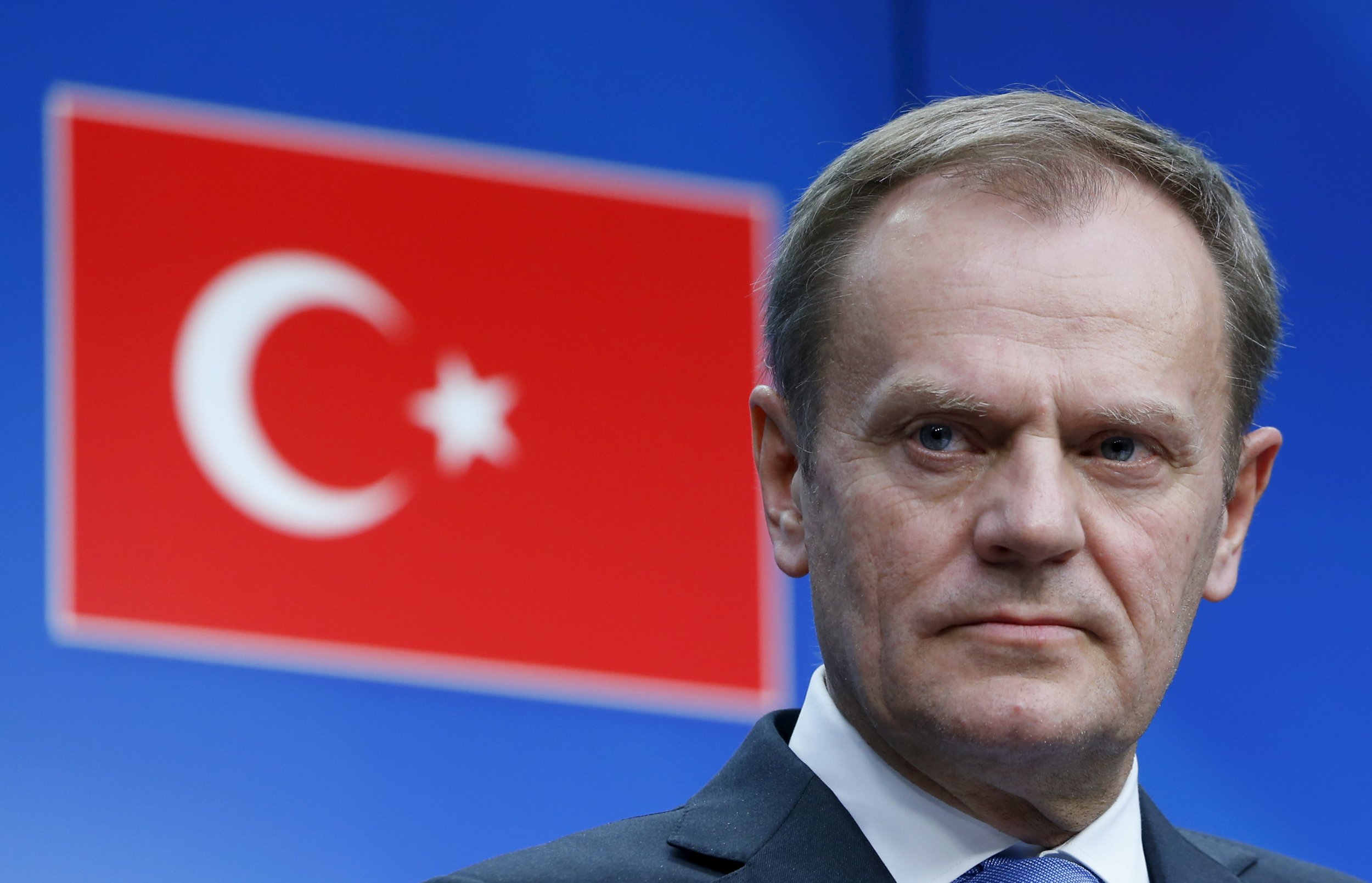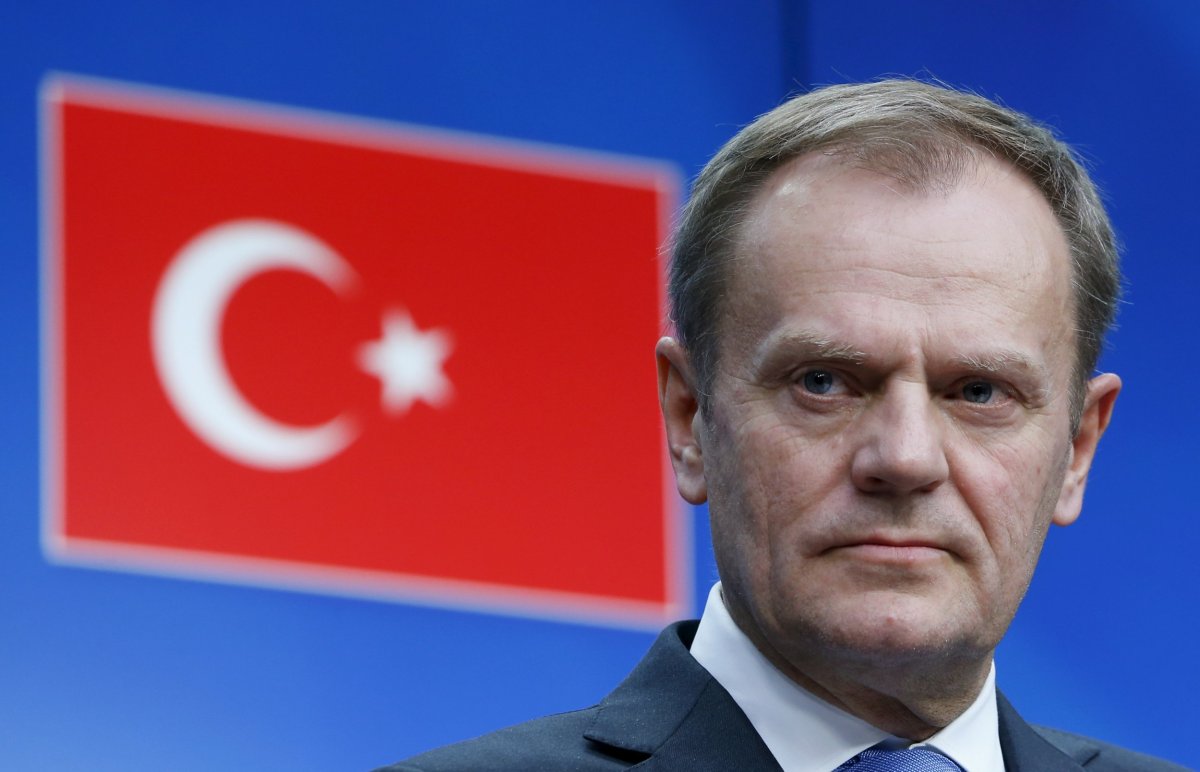
This piece originally appeared on the LSE Brexit vote Blog. Read the original article.
If one were to take Brexiteers' arguments about future EU enlargements seriously, then champagne would surely be flowing in prodigious quantities in Podgorica, Belgrade, Tirana and Ankara. However, the reality is very different and, truth be told, one should not expect a single expansion of the EU in the next decade or so. To claim otherwise is a textbook example of unsubstantiated scaremongering.
The current pre-accession policy is a very demanding exercise—in fact way more demanding than it has ever been. With ever developing conditionality and benchmarking, the pre-accession effort has become a time-consuming and very tedious experience. It should not be surprising by any stretch of imagination to those au courant with the state of affairs among the aspiring and potential candidates for membership.
To begin with, one should get the facts straight. The EU is currently involved in accession negotiations with Turkey, Montenegro and Serbia. Contrary to what Mr Gove claims, Albania has not yet received a green light to begin accession negotiations. For that to happen, unanimity of the Member States is required, meaning that no decision can be made without the blessing of Whitehall.
The other countries that have expressed their interest in membership include Kosovo, Bosnia and Herzegovina, as well as Macedonia. For the time being, accession negotiations for any of these three remain a mirage in the desert. Kosovo remains unrecognized by several EU Member States, while Bosnia and Herzegovina is drowning in internal political shenanigans. Macedonia, with its politically bankrupt authoritarian government, is slowly but firmly drifting into unknown waters. The current state of affairs looks more like Molotov's cocktail than a firm drive towards EU accession.

Then, of course, there is Turkey. As is well-known, Turkey—following its very long engagement with the EU—began accession negotiations over a decade ago. Alas, this does not mean that it has been actively negotiating all those years. Quite the contrary. Its membership bid has been in limbo for many years now. To outsiders, the current EU-Turkey deal on refugees may look like a sign that rapprochement will speed up now. Insiders know very well that this is rather unlikely. The question is not when Turkey will join the European Union but if it will accede at all. Its accession negotiations are not yet in a spin dive, but with only a handful of 35 negotiation chapters opened and closed, Turkey is miles away from membership in the EU. This is not something that can be fixed in a year or two, even if there is a unanimous decision of the Member States, including the United Kingdom, and an enormous diplomatic push.
Neither Montenegro nor Serbia are making spectacular progress either. The European Commission has already made it clear last year that no enlargement will take place by the time its five-year mandate expires in 2019. The next European Commission is likely to say exactly the same thing. A combination of heavy conditionality and benchmarking with very limited appetite for future enlargements among the current Member States of the Union does not create good ground for future expansions of the EU. One should not forget that the enlargement policy is a Member States-driven process where key decisions are taken unanimously by all 28 countries. This, in simple terms, means that not a single country will join the EU unless all its Member States agree. To put it differently, the U.K. will not be pushed into an EU enlargement unless it agrees to one. The duty of honesty, which applies to Leave and Remain campaigns alike, requires both sides to inform the members of public accordingly.
Finally, there is the elephant in the room: migration. Contrary to the visions spread by some, the opening of labor markets in the EU Member States to nationals of potential newcomers is not a done deal. Firstly, the negotiating position is prepared by the European Commission – but it has to be approved by the Member States. Secondly, long transitional periods may be requested for both the free movement of workers and the right of establishment, which allows migrating EU citizens to settle as self-employed. To put it differently: even if one of more of the current candidates or potential candidates joins the EU years from now, this is unlikely to translate into a flood of people reaching the white cliffs of Dover. The U.K. labor market may remain closed to them for years, if not decades, to come. Once again, it should be emphasized that all crucial decisions, including conclusion and ratification of accession treaties regulating membership of new Member States, requires the unanimity of EU Member States. So not a single EU enlargement will take place without the U.K.'s approval.
All in all, the EU enlargement-related arguments recently put forward by the Brexiteers are missed shots. What should be emphasized, however, is that for the Western Balkan countries the prospect of EU membership seems to be, rightly or wrongly, a magic wand. It cannot be denied that EU and U.S. presence in that region guarantees (relative) peace and stabilisation. If that is gone, the Member States of the EU, including the U.K., may face not a wave of migrant workers from the Balkans but trucks, trains or boats full of refugees. The decision-makers should be aware of that and look for ways to strengthen the pre-accession policy, not to weaken it. The EU simply cannot afford yet another conflict on its doorstep.
Adam Lazowski is Professor of EU Law at the University of Westminster.
Uncommon Knowledge
Newsweek is committed to challenging conventional wisdom and finding connections in the search for common ground.
Newsweek is committed to challenging conventional wisdom and finding connections in the search for common ground.
About the writer
To read how Newsweek uses AI as a newsroom tool, Click here.








